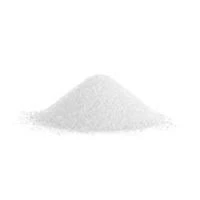
high nitrogen fertilizer
The Impact of High Nitrogen Fertilizers on Agriculture and the Environment
High nitrogen fertilizers have become a cornerstone of modern agricultural practices, significantly enhancing crop yields and improving food security across the globe. This type of fertilizer contains elevated levels of nitrogen, an essential nutrient that plays a crucial role in plant growth, particularly in the formation of proteins and chlorophyll. While these fertilizers have contributed to increased agricultural productivity, their use is accompanied by a variety of environmental challenges that warrant careful consideration.
Nitrogen is vital for plants as it promotes lush, green foliage and vigorous growth. Crops such as wheat, corn, and rice often respond positively to high nitrogen applications, allowing farmers to achieve higher yields on their land. These fertilizers help to compensate for nutrient deficiencies in the soil, especially in intensive farming systems where crops are cultivated year after year. Furthermore, high nitrogen fertilizers can reduce the time required for crops to reach maturity, thereby increasing the efficiency of land use.
However, the widespread application of high nitrogen fertilizers is not without its downsides. One of the primary environmental concerns is nitrogen leaching into water systems. When excess nitrogen is applied to fields, it can wash away during rainfall or irrigation, ultimately contaminating nearby rivers, lakes, and groundwater. This leaching leads to a range of serious issues, including the growth of harmful algal blooms, which can produce toxins and degrade water quality. The consequences are far-reaching, affecting aquatic ecosystems and posing risks to human health.
high nitrogen fertilizer

Another issue associated with high nitrogen fertilizers is soil degradation. Continuous use of these fertilizers can disrupt the natural nutrient balance in the soil, leading to a decline in soil health and fertility over time. Healthy soils harbor a complex ecosystem of microorganisms that play a vital role in nutrient cycling. The over-reliance on synthetic fertilizers can diminish these microbial communities, reducing their ability to support plant growth and resilience.
Moreover, the production and application of high nitrogen fertilizers contribute to greenhouse gas emissions. The process of manufacturing synthetic nitrogen fertilizers is energy-intensive, often relying on fossil fuels, which release significant amounts of carbon dioxide into the atmosphere. Additionally, when nitrogen fertilizers are applied, some of the nitrogen can be converted to nitrous oxide, a potent greenhouse gas that has a much greater warming potential than carbon dioxide.
To address these challenges, sustainable agricultural practices are being explored. Integrated nutrient management approaches, such as combining organic matter with inorganic fertilizers, can help maintain soil health and reduce the reliance on chemical inputs. Additionally, precision agriculture techniques allow farmers to apply fertilizers more efficiently, minimizing waste and environmental impact. Crop rotation and polyculture can also enhance soil quality and biodiversity, making ecosystems more resilient to changes.
In conclusion, while high nitrogen fertilizers have played a pivotal role in enhancing agricultural productivity, their environmental implications cannot be overlooked. Striking a balance between maximizing crop yields and minimizing ecological damage is essential for the future of agriculture. By adopting sustainable practices and reevaluating our dependence on synthetic fertilizers, we can work towards a more resilient food system that supports both human needs and environmental health. Through innovation and responsible stewardship, we can ensure that agriculture thrives without compromising the integrity of our ecosystems.
-
Sodium Dichloroisocyanurate Safety Handling ProtocolsNewsJul.29,2025
-
Mining Chemicals for Copper Extraction Processes GuideNewsJul.29,2025
-
Fertilizer for Sale Shipping and Storage TipsNewsJul.29,2025
-
Dimethyl Disulfide as Sulfurizing AgentNewsJul.29,2025
-
Benzotriazole Safety Data Handling and Storage GuidelinesNewsJul.29,2025
-
Ammonium Bicarbonate Safety Handling Storage GuidelinesNewsJul.29,2025
-
The Transformative Role Of Trichloroisocyanuric Acid in Water TreatmentNewsJul.23,2025
Hebei Tenger Chemical Technology Co., Ltd. focuses on the chemical industry and is committed to the export service of chemical raw materials.
-

view more DiethanolisopropanolamineIn the ever-growing field of chemical solutions, diethanolisopropanolamine (DEIPA) stands out as a versatile and important compound. Due to its unique chemical structure and properties, DEIPA is of interest to various industries including construction, personal care, and agriculture. -

view more TriisopropanolamineTriisopropanolamine (TIPA) alkanol amine substance, is a kind of alcohol amine compound with amino and alcohol hydroxyl, and because of its molecules contains both amino and hydroxyl. -

view more Tetramethyl Thiuram DisulfideTetramethyl thiuram disulfide, also known as TMTD, is a white to light-yellow powder with a distinct sulfur-like odor. It is soluble in organic solvents such as benzene, acetone, and ethyl acetate, making it highly versatile for use in different formulations. TMTD is known for its excellent vulcanization acceleration properties, which makes it a key ingredient in the production of rubber products. Additionally, it acts as an effective fungicide and bactericide, making it valuable in agricultural applications. Its high purity and stability ensure consistent performance, making it a preferred choice for manufacturers across various industries.











